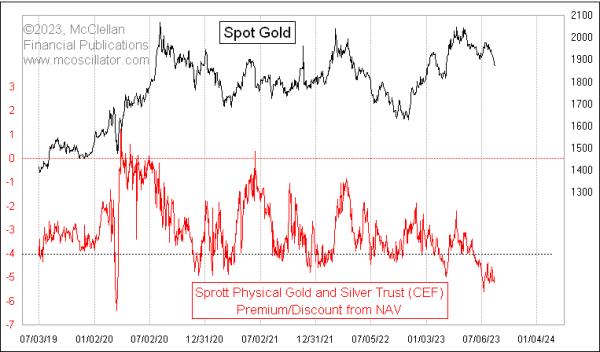When Jeff Foose welcomed Lucy, a Boston terrier, into his family in 2014, protecting her health was a big concern. His veterinarian recommended pet health insurance from a company called Trupanion, and Foose bought in. He appreciated that the company’s policy promised it would never raise his premiums by more than 20% a year.
That pledge didn’t last long. Trupanion has raised Lucy’s premiums by well over that limit in some years, his documents show, and Trupanion just told him that he and other pet owners in New Jersey could see their premiums rise 33.6% this year. Making matters worse, Foose said he can’t change insurance carriers because Lucy has a skin condition that a new insurer would likely not cover.
Seattle-based Trupanion, the leader in the pet insurance field, says it must raise premiums because vet costs are rising. Foose is unhappy. “It makes me crazy when someone sells me something and they make an embedded promise they don’t keep,” he told NBC News.
Some 5.4 million pet insurance policies were in force across the U.S. in 2022, up over 21% from a year earlier, according to the North American Pet Health Insurance Association. Trupanion insured 1.5 million pets as of December 2022, its financial filings state, roughly triple the number it did in 2018.
Since 2018, the number of insured pets in the U.S. has risen almost 23% a year, on average. Roughly 80% of insured pets are dogs, with cats making up the rest. As pet insurance has increased in popularity, consumer criticisms have risen as well. They fall into three main categories, veterinarians say — long waits for claims reimbursement, denial of claims for pre-existing conditions and premium increases.
Jeffrey Foose’s Boston terrier, Lucy.Courtesy Jeffrey Foose
Costs of goods and services are up everywhere and pet care is no exception. Government data shows the costs of veterinary services rose 10.6% in July, year over year.
Trupanion’s recent increases well exceed that rate, regulatory and customer documents show. Victoria Boyd, for example, shares her Las Vegas home with two cockapoos, one Shih Tzu and a Labrador retriever, and said the cost of covering their veterinary care with Trupanion is becoming a financial burden — approaching $400 a month. Like Foose, Boyd says she would have a hard time getting coverage on one of her dogs from a new insurer because of a pre-existing condition.
In just two years, the cost of insuring one of her cockapoos has risen 57%, from $77.94 to $122.11, Boyd’s documents show. In June, her monthly premium covering her Lab, Chance, rose 38% from 2022. Boyd said she has never filed an insurance claim on Chance.
Victoria Boyd with her cockapoos, Zuko and Sandy.Courtesy Victoria Boyd
A customer of Trupanion since 2017, Boyd said she was a fan of the insurer at first. “Their rates were great before and the positives of Trupanion are direct pay to vets and no payout limits for condition or ailment,” Boyd told NBC News. But now, she said, “it feels like a bait and switch — you got me in at these great rates and I’m almost trapped.”
Margi Tooth, Trupanion’s president, said she was disappointed by Boyd’s view. “I think we work very hard to ensure that we’re explaining our value proposition,” she said. The company’s price hikes are the result of vet cost inflation, Tooth said, and the rising costs of care in a customer’s specific region.
Tooth did not say why Trupanion had raised Foose’s premiums above the cap stated in his policy. She did say, “If there were ever any changes to a customer’s policy, the coverage, the benefits, the pricing, everything is always detailed in an annual summary and will provide information related to the changes in our coverage.”
Companies offering pet insurance are overseen by state regulators, and some of the rate increases recently requested by Trupanion are far higher than the overall inflation rate. In June, the company asked the Florida insurance regulator for a 48.9% price increase on top of a 14% hike that the regulator approved in February. Earlier this year in California, Trupanion asked for a 28% rate increase; the regulator approved only a 12% rise.
Victoria Boyd’s Labrador retriever, Chance, and her Shih Tzu, Deacon.Courtesy Victoria Boyd
In its SEC filings, Trupanion says if state regulators delay its price increases, the company’s financial condition could be adversely affected. Bradley Safalow, an analyst who covers Trupanion at PAA Research, said he believes Trupanion will continue to face regulatory opposition to its price increases and he is betting its stock price will decline. Policyholders in California account for almost 20% of the company’s revenues, Safalow noted.
NBC News compared prices among five big pet insurance providers — Embrace, Figo, MetLife, Pets Best and Trupanion. The same dog breed, age and size was used for each quote, aiming for 90% coverage and a low deductible of $200 to $500. Trupanion’s rate came in three to four times the costs of the other four providers on both a 3-year-old and a 6-year-old male Jack Russell terrier mix.
Asked what accounted for the price differences, Laura Bainbridge, Trupanion’s head of corporate communications, said, “Products are not comparable across pet insurance. Trupanion is going to generally offer the fewest exclusions — covering conditions that a pet may be predisposed to.”
Tooth said the company’s product is a good value because it does not have limits or caps on coverage as other offerings do and it pays the vet directly. “You’ve got lifetime coverage that covers the unexpected,” Tooth said. “It’s built for the life of your pet.”
Still, Kevin Brasler, executive editor of Consumers’ Checkbook, an independent organization that helps consumers shop for the best prices on goods and services, said, “Pet insurance is a really expensive product. It seems inexpensive at first when you’re only paying $40 a month. But a lot of things have to go wrong with your pet to make pet insurance a good deal.”
Trupanion has generated losses since its inception and last December reported an accumulated deficit of $172 million. It has funded its operations by issuing shares and borrowing.
The company’s stock has been volatile; soaring to $122 in 2021, it recently traded around $30.
New customers come to Trupanion from its website and referrals, but much of its business comes from veterinarians who recommend its products to their customers, as Foose’s vet did.
Jeffrey Foose’s family with their Boston terrier, Lucy.Courtesy Jeffrey Foose
Frances Wilkerson is a longtime veterinarian who reviews pet insurance offerings on her website Pet Insurance University. Unlike other review sites, Wilkerson is an independent assessor who says she receives no commissions or other pay for her research. She said more regulation, especially on pricing, is needed to protect buyers of pet insurance.
“I would really like consumers to have some clarity on what’s the maximum their premium can increase every year,” she said.
Darryl Rawlings, Trupanion’s founder and CEO, said his company doesn’t project how much premiums will rise because it’s an unknown. “We’re not trying to predict what’s going to happen in veterinary medicine 5 to 10 years down the road,” he said. “What we’re trying to do is understand the cost and project it out over 12 to 18 months so we can price our members appropriately.”
Until recently, industry regulations have been sparse. Last year, the National Association of Insurance Commissioners, a group of state overseers, drafted a “Pet Insurance Model Law” to “promote the public welfare by creating a comprehensive legal framework” covering sales of the product. Now, some states are implementing new rules.
One is Maine, whose insurance department recently advised pet insurers that they can no longer defer the effective date of a new policy for days or weeks. Such delays were designed to prevent customers from submitting a claim for an accident that has already occurred, for example. In July, Trupanion sued the Maine insurance superintendent seeking a so-called declaratory judgment that would allow the company to continue deferring new policies’ effective dates.
Emily Brill, founder and publisher of The Canine Review, an independent news service covering the pet industry, said other states are likely to follow Maine’s lead on so-called waiting periods, a source of considerable consumer complaints. “As more states want to get rid of waiting periods on accidents and put huge restrictions on all kinds of waiting periods, it’s sending insurers into panic mode,” Brill said. Trupanion is more vulnerable than other insurers, she added, because the company’s premise is to provide coverage that has no limits or exclusions. “If they start not covering everything, that’s a problem because it messes with their formula.”
Trupanion’s pricing has come under scrutiny in California. Last year, the state’s insurance regulator alleged Trupanion’s underwriting unit, American Pet Insurance, had violated state laws by charging different premiums to customers based on the sales method the customer used to buy the policy. The notice said the company had violated California law requiring that an insurer charge an insured “the lowest premium for which the insured qualifies.” Trupanion settled without admitting to any wrongdoing.
Regarding Trupanion’s price increases, Brasler, of Consumers’ Checkbook, said, “It’s hard to know whether they’re doing it because it’s a money grab or if their risk has gone up. The feedback is at least they pay claims — it’s not like they’re rejecting tons of claims. Still, I wouldn’t buy pet insurance,” he added.
This post appeared first on NBC NEWS










